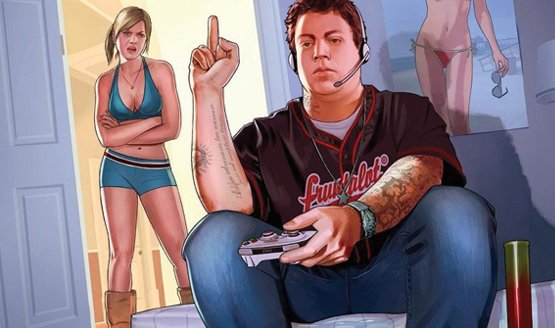Before we deep dive into such a complex, sensitive topic, it’s important to define the issue in question. What is addiction, exactly?
History tells us that the word ‘addiction’ is actually derived from the Latin term for ‘enslaved by’ (or ‘bound to’, subject to semantics), and typically manifests in three distinct ways: craving for a specific object or thing; loss of control over its use; and continuing involvement with said object, even in the face of psychological and/or physical side effects.
This neural feedback loop, if you will, is fuelled by dopamine (AKA the ‘pleasure drug’), which zips around the brain’s so-called Reward Center and turns that frown upside down…or something to that effect. What’s particularly fascinating is that the brain registers all forms of pleasure in the same way – regardless of whether it’s from a monetary reward, a sexual encounter, a psychoactive drug or substance, or just a damn good meal. And that’s where the problems start to arise.
The ‘Pleasure Drug’
Addiction is a very real and very frightening chronic disease, then, one capable of altering brain function and, for want of a better word, hijacking that aforementioned Reward Center. The result? Memory and decision-making becomes foggy, while the ways in which we associate Object X with gratification, and form new memories based around that experience, tricks our mind into thinking that we don’t just want something, we need it.

Which brings us to the question at hand: are video games more addictive now than they’ve ever been? The World Health Organization certainly believes so, as late last month the agency listed “gaming disorder” as a mental health condition for the very first time.
Due to be published later this year, the WHO’s draft document is to be the 11th International Classification of Diseases (ICD), and the first since ’92. It describes “gaming disorder” as a pattern of behaviour – either persistent or recurrent – so severe that it takes “precedence over other life interests.”
“Gaming Disorder”
Symptoms include impaired control over gaming (i.e. duration and intensity) and an inability to put down the controller (or mouse and keyboard), even in the face of negative side-effects, whether they manifest in the form of repetitive strain injury, recurring headaches, or abnormal behaviour. Staying up that little bit later to topple a boss or complete a specific level is all well and good, but not if you slip into a repetitive pattern that leaves your eyes aching and fingers twitching.
Indeed, in order for a diagnosis to be assigned, the WHO’s draft document suggests that abnormal gaming behaviour “should be in evidence over a period of at least 12 months.” That window of time may be reduced, too, depending on the severity of each case.
Compulsive behaviour may indicate a deeper problem, though, while the ESA is firmly of the belief that classifying gaming addiction as an out-and-out disorder “recklessly trivializes real mental health issues like depression and social anxiety disorder, which deserve treatment and the full attention of the medical community.”

It’s sensationalist in the eyes of the ESA, and it remains to be seen whether this pushback has any real effect on the finalized ICD. There’s also the very real issue that video game addiction, in its purest, most alarming form, can be difficult to quantify, as the victim – or player, in this instance – may refuse to acknowledge any symptoms in fear of the subsequent shame. There’s an abiding stigma associated with all forms of addiction, and “gaming disorder” is no exception
Because even if it is left out of the final document, the World Health Organization is still raising awareness of an issue that is typically buried – or, at the very least, pushed to the fringes – within gaming discourse. And addiction can be prevalent in the video game industry.
The Dreaded Loot Box
This is, after all, a business that has its roots in the arcade industry, one designed to nickel-and-dime its customers with enticing gameplay and steep learning curves, resulting in an experience that was at once relatively simple, yet brutally difficult. In their desire to retain an impassioned audience, developers built these water-tight feedback loops within age-old classics like Donkey Kong and Tetris, which would later go on to inspire a generation of high-score chasers.
By 2018, the video game industry has ballooned in size, spawning contentious monetization tactics (read: loot boxes) and an entire eSports scene that continues to grow and evolve with each passing year. It’s also a radically different landscape to the one dominated by coin-operated machines, and as video games continue to become more realistic – more complex, more cinematic, and ultimately more engaging – we’ll likely see the mainstream media place a bigger spotlight on their “addictive” qualities…if it hasn’t already.
Last year, for instance, Star Wars Battlefront II was shoved into the public eye for its gross mishandling of in-game microtranscations, which proved so contentious among the sequel’s user base that EA decided to pull them on the eve of release. Gambling regulators have also taken note of Battlefront’s monetization on the belief that predatory, pay-to-win loot boxes help fuel an addictive feedback loop – one that has the potential to normalize gambling among a younger audience.

In that sense, yes, modern-day video games can be more addictive than their pixelated predecessors – or at the very least, they’re more capable of leaving players feeling ‘enslaved’ or ‘bound to’ a specific title. At the risk of painting in broad strokes, added incentives like in-game loot boxes and persistent online worlds can keep us hooked for longer periods of time, but that doesn’t necessarily constitute a mental health condition.
Because, frankly, addiction is so subjective. Just because I spend upwards of 10 hours on my laptop every weekday doesn’t necessarily mean that I’m addicted. I have bills to pay and articles to write (like this one!), and I wouldn’t say my behavior is any different whether I’m on the laptop, or not. Point is, human beings are capable of being addicted to just about anything that, in turn, triggers a release of dopamine in the brain.
Everything in Moderation
People play games for different reasons, too; some see it as an escape from the hustle and bustle of daily life, while others consider it to be a bona fide career. And one need only look to the thriving eSports scene for evidence of that.
It’s when that same experience becomes warped, or spirals out of control, that problems begin to seep in. And though there may be a stigma and sense of shame that comes with the mere mention of addiction, help is out there. Should you believe you exhibit the tell-tale signs of video game addiction, or you simply want to free yourself from the shackles of gaming, we urge you to reach out and seek professional advice. Because acknowledging that a problem exists is the first step to solving it.








